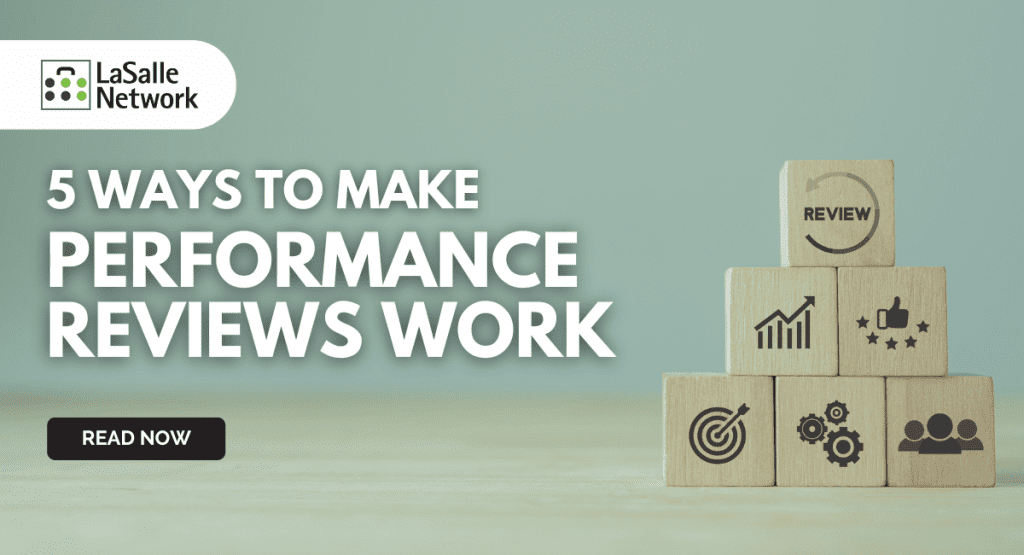If you’re adding talent to your team, let us help. Get connected with us here.
There have been a lot of changes recently in the world of work, with unemployment reaching all-time lows, predictions of a recession impacting some business’ hiring decisions, many large tech companies undergoing layoffs, and more. With a shifting economy comes shifting employee needs and emerging workplace trends – and we did the research for you on how to support and retain talent throughout it all. Download our latest report today.
In an effort to keep their people happy, many companies have paused formal performance reviews, or opted for a gentler, more praise-centric approach. While this was likely done to help ease employee stress, it may have had a different effect. Now, employers may need to seriously consider incorporating frequent feedback sessions as a normalized part of work and a pillar of an effective retention strategy.
Performance reviews, when done appropriately, are a powerful tool that can be used to engage and reinvigorate staff, easing uncertainty and helping employees feel seen and supported by their manager. These meetings, despite the stigma they may carry, could actually be a valuable way to help retain talent.
A lack of clarity and recognition may be a driving factor of employees burning out, not feeling connected to their current employer, or otherwise wanting to move on. Conducting performance reviews now, amid the shifting jobs market, may be the perfect time to help reengage staff.
Below, we share 5 ways to conduct effective performance reviews to help cultivate employee connectivity and empower them to do their best work.
1. Build a relationship first.
It is important managers understand their people, what makes them tick and how best to motivate them. Having an established relationship can help employees understand where their manager is coming from during performance conversations and gives the conversation greater merit.
Building or maintaining this relationship has had additional challenges with remote or hybrid work. It will be important that managers begin reconnecting and investing in their relationship with employees now. This relationship will serve as a foundation for performance discussions that employers should start having more regularly.
Building a relationship with employees should be seen as an emotional bank account. Every time critical feedback is given, it’s like withdrawing from that account. Managers need to deposit/invest into that account to avoid overdrafts in the form of check-in calls, one-on-one career development/coaching and public praise.
2. Cultivate a feedback-positive culture.
Regularly reinforcing feedback should be a normal part of day-to-day conversations and not something to fear. This is an important way managers can improve their team’s communication and lead to more effective performance conversations and reviews. Now is the perfect time to work on establishing a more feedback-positive culture as the economy and many workplace norms begin to shift.
A manager’s goal is to help employees be successful and grow in their careers, which includes regular feedback and redirection. By creating an environment where feedback is normalized and accepted, formal reviews may cause less intimidation and instead provide a positive mentorship and growth opportunity.
3. Create a strong performance plan.
Outside the context of a performance review, managers should regularly discuss individual and team goals, and ensure employees understand how their performance impacts these goals. Cascade business goals into clear, individual deliverables, including performance metrics that are updated regularly, for employees to see concrete ways they help propel the team toward its goals.
A clear performance plan helps employees understand exactly how they are tracking toward goals and what areas they need to focus on at any given time, well before getting to a performance review.
4. Make reviews relevant to now.
Performance reviews will likely need to be updated to account for new responsibilities employees have taken on and the many changes to the market. However, managers should also consider what has changed about the business and professional environment to assess what additional expectations will be important to address in reviews. Consider how to assess employees for other important factors such as adaptability or their role in culture-building.
For those who have been especially encouraging or energizing in team meetings, recognize their efforts in helping cultivate community. For those who have not stood out or contributed as much to the team culture, managers may share what expectations will be moving forward.
5. Follow up.
It can be hard to gauge how employees are processing difficult performance discussions. It is important to follow up and ensure the conversation was understood on both ends. Managers should have the employee recap the discussion to ensure feedback was understood correctly and to check they are in alignment on next steps.
Checking in later that day or week to see how the employee is feeling and if any questions or concerns come up can give employees the opportunity to revisit any points of contention. After having the chance to digest and reflect on the performance review, employees may come back with more creative solutions or follow-up questions. Managers should pay attention to body language in these and other meetings and be on alert for attitude adjustments. If there is a negative change in behavior or attitude, address it quickly.
All performance conversations should be in-person or via video call. This can help improve communication and avoid misunderstandings. When connecting over video, it is important to put away all distractions and close out all windows, looking into the camera lens to make eye contact. When done well, performance reviews can be a positive experience that provides employees with greater confidence and clarity in their role. Getting clear directives from management on ways to improve performance can also help employees feel more engaged, empowered and self-assured.
If you’re adding talent to your team, let us help. Get connected with us here.





